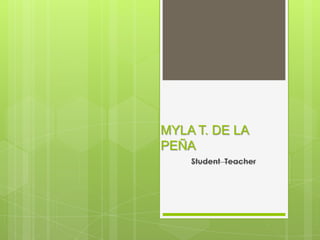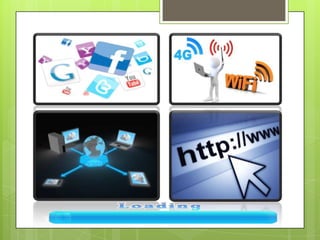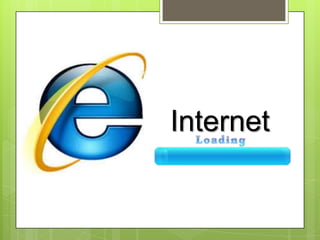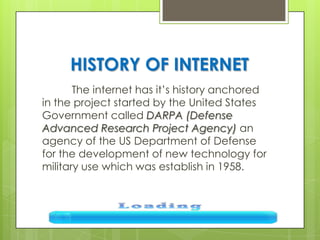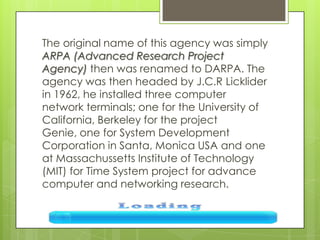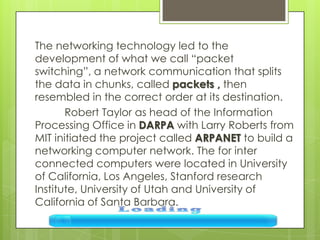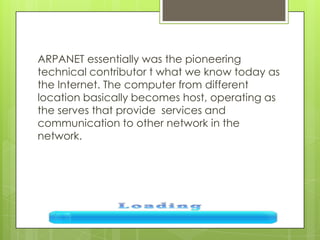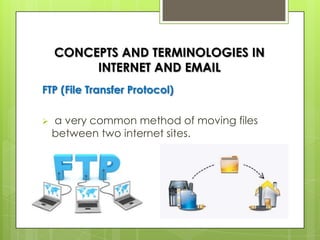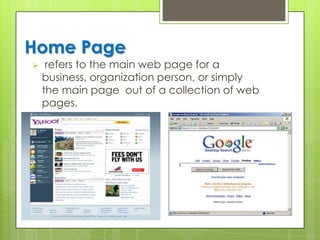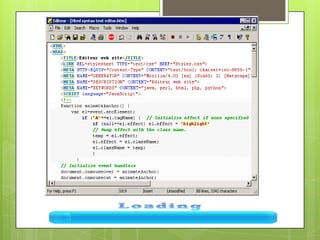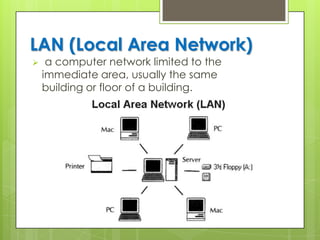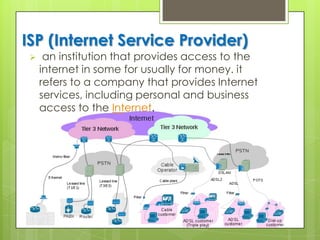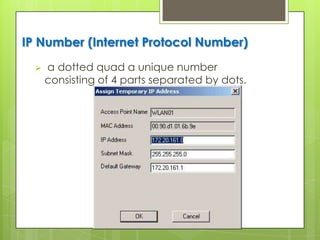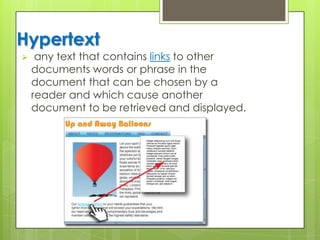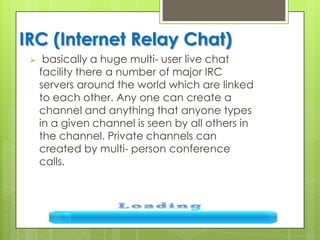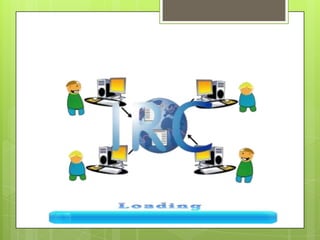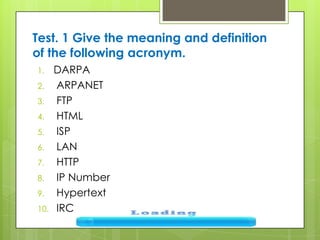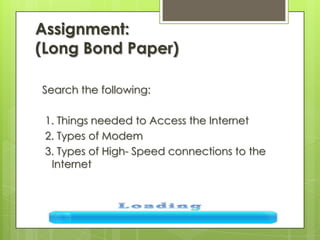Computer Lesson 1
- 2. MYLA T. DE LA PEÃA Student Teacher
- 4. Internet
- 5. HISTORY OF INTERNET The internet has itâs history anchored in the project started by the United States Government called DARPA (Defense Advanced Research Project Agency) an agency of the US Department of Defense for the development of new technology for military use which was establish in 1958.
- 6. The original name of this agency was simply ARPA (Advanced Research Project Agency) then was renamed to DARPA. The agency was then headed by J.C.R Licklider in 1962, he installed three computer network terminals; one for the University of California, Berkeley for the project Genie, one for System Development Corporation in Santa, Monica USA and one at Massachussetts Institute of Technology (MIT) for Time System project for advance computer and networking research.
- 7. The networking technology led to the development of what we call âpacket switchingâ, a network communication that splits the data in chunks, called packets , then resembled in the correct order at its destination. Robert Taylor as head of the Information Processing Office in DARPA with Larry Roberts from MIT initiated the project called ARPANET to build a networking computer network. The for inter connected computers were located in University of California, Los Angeles, Stanford research Institute, University of Utah and University of California of Santa Barbara.
- 8. ARPANET essentially was the pioneering technical contributor t what we know today as the Internet. The computer from different location basically becomes host, operating as the serves that provide services and communication to other network in the network.
- 9. CONCEPTS AND TERMINOLOGIES IN INTERNET AND EMAIL FTP (File Transfer Protocol) ï a very common method of moving files between two internet sites.
- 10. Home Page ï refers to the main web page for a business, organization person, or simply the main page out of a collection of web pages.
- 11. HTML ( Hypertext Markup Language) ï Coding language used to create Hypertext documents for use on the world wide web. HTML looks a lot like old- fashioned type setting code, where you surround a block of text with codes that indicates how it should appear.
- 13. HTTP (Hypertext Transfer Protocol) ï the protocol for moving hypertext files across the internet. Requires a HTTP client program on one end and an HTTP server program on the other and HTTP is the most important protocol used in the world wide web.
- 14. LAN (Local Area Network) ï a computer network limited to the immediate area, usually the same building or floor of a building.
- 15. ISP (Internet Service Provider) ï an institution that provides access to the internet in some for usually for money. it refers to a company that provides Internet services, including personal and business access to the Internet.
- 16. IP Number (Internet Protocol Number) ï a dotted quad a unique number consisting of 4 parts separated by dots.
- 17. Hypertext ï any text that contains links to other documents words or phrase in the document that can be chosen by a reader and which cause another document to be retrieved and displayed.
- 18. IRC (Internet Relay Chat) ï basically a huge multi- user live chat facility there a number of major IRC servers around the world which are linked to each other. Any one can create a channel and anything that anyone types in a given channel is seen by all others in the channel. Private channels can created by multi- person conference calls.
- 20. Study for 10mins. And, prepare long bond paper.
- 21. Test. 1 Give the meaning and definition of the following acronym. 1. DARPA 2. ARPANET 3. FTP 4. HTML 5. ISP 6. LAN 7. HTTP 8. IP Number 9. Hypertext 10. IRC
- 22. Quiz. 2 (Essay) 10points (5-8 sentences) ï Why Internet is essential today?
- 24. Assignment: (Long Bond Paper) Search the following: 1. Things needed to Access the Internet 2. Types of Modem 3. Types of High- Speed connections to the Internet


